6 Effortless Ways to Lower Inflammation, Say Dietitians

Inflammation certainly gets a bad rap, but it isn't always a bad thing. If you have an injury like a cut, your body uses inflammatory cells to come to the rescue and help you heal. Unfortunately, chronic inflammation can occur when your body acts as though there is an injury to heal even when there isn't one. If left untreated, it may contribute to things like heart disease, arthritis, and diabetes.
Chronic inflammation is most commonly caused by autoimmune disorders, but researchers have also found that heavy alcoholism, obesity, and smoking can lead to it as well. While lowering inflammation requires more than just one single solution, making changes to your daily diet can have a huge impact.
Learn more about some changes you can make to your eating habits to help lower inflammation. And for more healthy eating tips, check out 5 Effortless Ways to Lower Cholesterol.
Add color to your day.
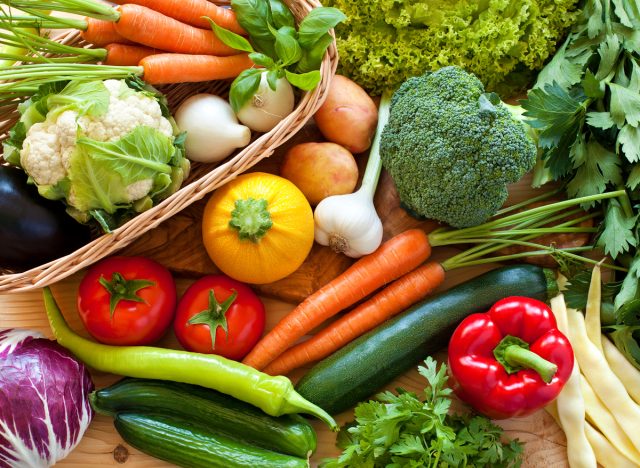
When it comes to lowering inflammation, making sure you're getting enough key nutrients is crucial.
"Fruits and veggies are loaded with vitamins, minerals, plant compounds, and antioxidants," says Amy Goodson, MS, RD, CSSD, LD author of The Sports Nutrition Playbook and member of our medical expert board. "Antioxidants help fight free radicals (aka the bad guys) that cause damage to cells and contribute to inflammation. The more produce you eat, the more you provide your body with the 'ingredients' it needs to fight inflammation and stay healthy and strong. Add veggies to egg scrambles or use them as dippers for hummus and guacamole, and see how many colors you can get on your plate at night! Then use fresh fruit as an alternative to sweets at snack time."
Blend natural sweeteners into your smoothies.
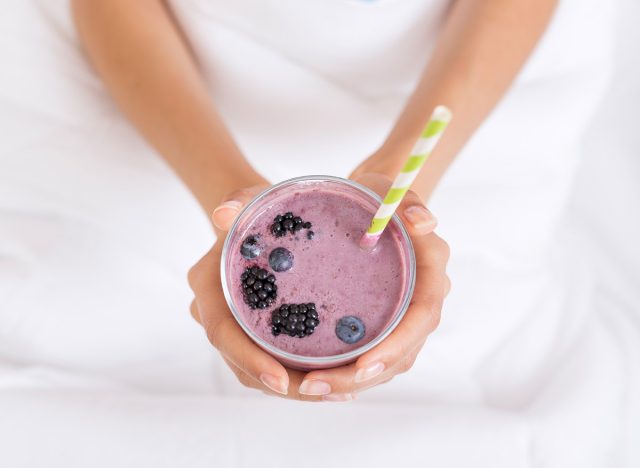
Consistent, heavy consumption of added sugar over time has been known to lead to inflammation in the body. To help with this, Goodson suggests using more natural sweeteners in your daily eating routine.
"Fruits like Medjool dates, berries, and even 100% pomegranate are great ways to naturally sweeten your morning or post-workout smoothie," says Goodson. "Not only do they satisfy that sweet craving, but they also provide antioxidants and other nutrients that help fight inflammation. Plus, if you blend the whole fruit, you also get fiber, which promotes a healthy gut and a healthy heart."
Cut back on fried foods.
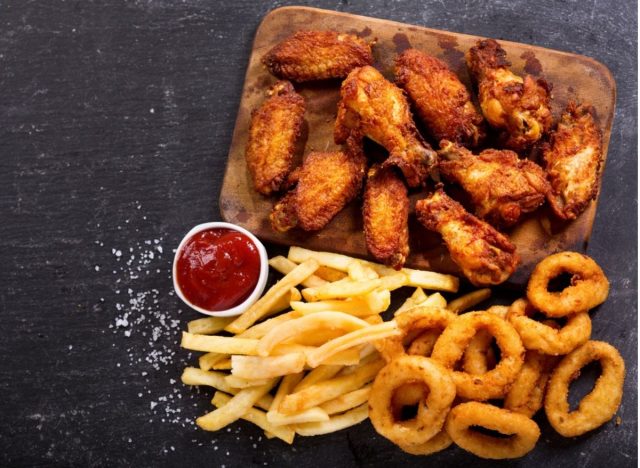
Another shift you can make in your daily life to avoid inflammation is to lower your intake of fried foods.
"Fried foods provide the body with a lot of saturated fat, which when consumed consistently, can contribute to an increase in total and bad cholesterol, as well as inflammation," says Goodson. "Swapping fried meats for grilled alternatives, fried side items for fruit cups, and chips for whole-grain crackers can help reduce your intake of saturated fat, ultimately helping to fight inflammation."
Choose wild-caught salmon versus farmed.
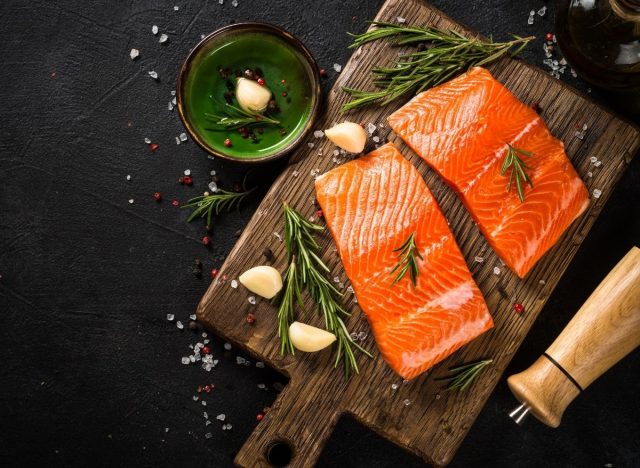
Replacing saturated and trans fats with healthier fat sources like salmon can significantly help reduce inflammation, but some experts say that choosing the right kind is important.
"Salmon is a good source of omega-3 fatty acids that can help reduce inflammation," says Maggie Michalczyk, RDN, founder of Once Upon A Pumpkin, and a cookbook author. "Farmed salmon typically has higher contaminants, which could worsen inflammation, which is why I recommend always looking for salmon out of Alaska to ensure it's wild-caught."
Cook with olive and avocado oil.
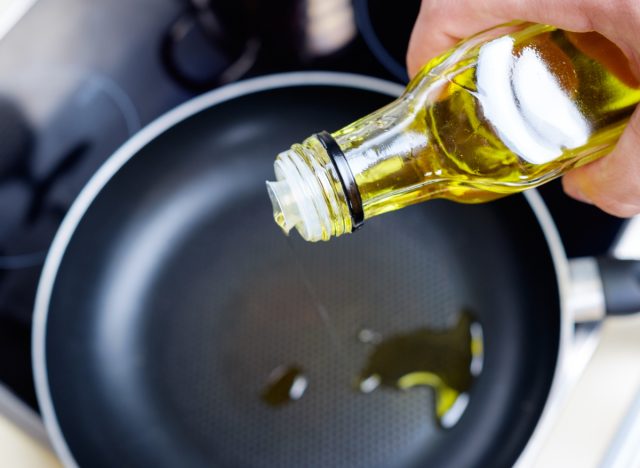
There are certain types of oil that can sneakily increase inflammation over time. So Michalczyk sticking to avocado or olive oil.
"Olive and avocado oils contain healthy omega-3 fatty acids that are anti-inflammatory, while other oils like canola oil, corn oil, and soybean oil can lead to inflammation over time," says Michalczyk. "Reading ingredient labels and swapping out inflammatory oils for anti-inflammatory oils is an easy swap. Olive oil is better at low temperatures for cold dishes like salads, while avocado oil is great for roasting things like veggies at high temperatures."
Add avocado to toast, sandwiches, and salads
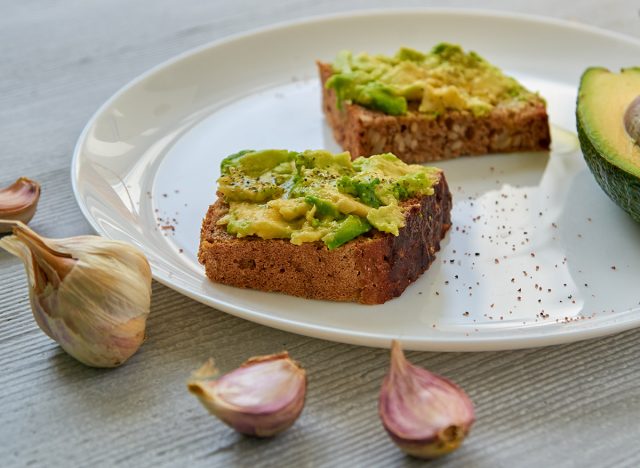
In order to get enough omega-3s in your day, Michalczyk suggests adding some avocado to your dishes when you can.
"Adding avocado to the foods you already eat is an easy way to help lower inflammation because avocados contain healthy, anti-inflammatory, monounsaturated fats," says Michalczyk. "It's a win-win because they also contain other beneficial vitamins and minerals too."









